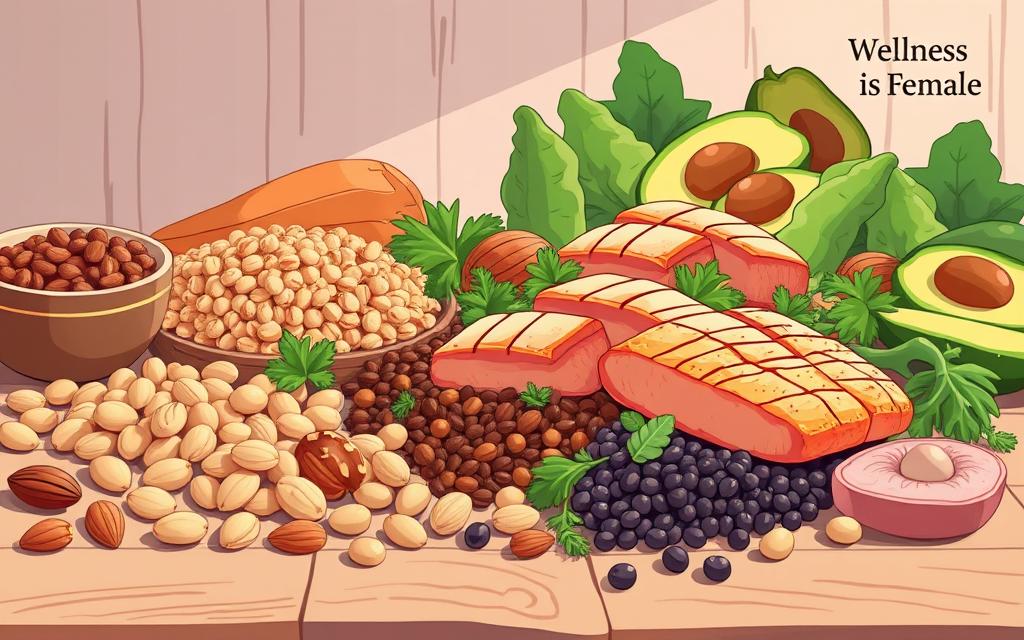Did you know that nearly80% of women experience hormonal imbalances, which can lead to a range of health issues, from fatigue and mood swings to more severe conditions like thyroid disorders?
The food we eat plays a crucial role in maintaining our hormonal balance. Certain nutrients can support hormone production, while others can disrupt it. In this article, we’ll explore the critical relationship between diet and hormonal health, and provide guidance on what to eat to support your hormones and what to avoid.
Key Takeaways
- Understanding how diet affects hormonal balance
- Identifying key nutrients that support hormone production
- Learning which foods to include and avoid for optimal hormonal health
- Practical tips for incorporating hormone-supporting foods into your diet
- Simple dietary changes to help restore optimal hormone levels
Understanding Hormonal Balance and Why It Matters
Hormones are vital chemical messengers that impact our mental, physical, and emotional health. They play a crucial role in controlling various bodily functions, including appetite, weight, and mood.
Our endocrine system produces hormones in precise amounts needed for optimal health. However, factors such as sedentary lifestyles, Western dietary patterns, and aging can affect hormone levels and disrupt this delicate balance.
How Hormones Affect Your Overall Health
Hormones orchestrate numerous bodily functions, from metabolism and growth to mood regulation and reproductive health. Even small imbalances can lead to significant health issues, making hormonal balance crucial for overall well-being.
Signs of Hormonal Imbalance
Common signs of hormonal imbalance include unexplained weight changes, fatigue, mood swings, sleep disturbances, and digestive issues. Recognizing these signs is the first step towards addressing hormonal imbalances and restoring health.
| Factors Affecting Hormonal Balance | Impact on Health |
|---|---|
| Sedentary Lifestyle | Disrupts normal hormone production |
| Western Dietary Patterns | Affects hormonal environment |
| Aging | Decline in certain hormone levels |
The Science Behind What to Eat for Your Hormones
The food we eat provides the building blocks for hormone production and regulation in the body. Our diet influences various physiological processes, including the production and balance of hormones. A well-balanced diet is essential for supporting hormone health and overall well-being.
Research has shown that specific nutrients play a critical role in hormone production. For instance, certain vitamins and minerals act as cofactors for enzymes involved in hormone synthesis. Moreover, the balance of macronutrients, including proteins, fats, and carbohydrates, affects hormone levels and signaling pathways.
How Diet Influences Hormone Production
The gut microbiome plays a crucial role in regulating hormones by modulating insulin resistance and feelings of fullness. A healthy gut is essential for maintaining optimal hormone balance. The food we eat directly impacts the composition and function of our gut microbiome.
The Gut-Hormone Connection
Our gut contains more than 100 trillion friendly bacteria, which produce numerous metabolites that may affect hormone health. The gut–hormone connection is critical, as an imbalance in the gut microbiome can lead to hormonal imbalances. Consuming a diet rich in fiber and diverse nutrients can support a healthy gut microbiome and, in turn, promote hormone balance.
As we explore the science behind hormone regulation, it becomes clear that a comprehensive approach to diet and lifestyle is necessary for maintaining optimal hormone health. By understanding how different foods and nutrients impact hormone production, we can make informed choices to support our overall health.
Protein-Rich Foods That Support Hormonal Health
Adequate protein intake is vital for producing hormones that regulate various bodily functions. Consuming sufficient protein is necessary for maintaining optimal hormone levels. Not only does protein provide essential amino acids that the body can’t produce on its own, but it’s also crucial for producing protein-derived hormones, also known as peptide hormones.
Why Protein Is Essential for Hormone Production
Peptide hormones play a crucial role in regulating many physiological processes, such as growth, energy metabolism, appetite, stress, and reproduction. Research has shown that eating protein decreases the hunger hormone ghrelin and stimulates the production of hormones that help body feel full.
Top Protein Sources for Hormone Balance
Experts recommend consuming a minimum of 25-30 grams of protein per meal. Some of the top protein-rich foods that support hormonal balance include lean meats, fish, eggs, dairy products, legumes, and nuts. These foods provide the necessary building blocks for maintaining optimal hormone levels.
By incorporating these protein-rich foods into your diet, you can support your overall hormonal health and well-being.
Healthy Fats That Regulate Hormone Levels
Incorporating the right types of fats into your diet can significantly impact your hormone levels and overall well-being. Healthy fats are crucial for the production and regulation of hormones in the body. They serve as the building blocks for hormones, including sex hormones like estrogen, progesterone, and testosterone.
Omega-3 Fatty Acids and Hormone Production
Omega-3 fatty acids play a vital role in reducing inflammation and supporting hormone receptor sensitivity throughout the body. These anti-inflammatory properties help in maintaining healthy hormone levels. Omega-3s are particularly beneficial for heart health and have been shown to support brain function and may help in managing stress.
Research has indicated that omega-3 fatty acids can help regulate cortisol levels, which is crucial during periods of stress. By incorporating sources of omega-3s into your diet, you can support your body’s natural hormone production processes.
Best Sources of Healthy Fats
There are several sources of healthy fats that can be easily incorporated into your diet. Some of the best sources include:
- Avocados
- Nuts and seeds (such as almonds, peanuts, and macadamia nuts)
- Fatty fish (like salmon and sardines)
- Pure MCT oil
- Coconut oil and olive oil
| Food Source | Type of Fat | Benefits |
|---|---|---|
| Avocados | Monounsaturated fats | Supports heart health and hormone production |
| Fatty Fish | Omega-3 fatty acids | Reduces inflammation and supports hormone regulation |
| Nuts and Seeds | Various healthy fats | Provides sustained energy and supports overall health |
By including these healthy fats in your diet, you can help regulate hormone levels, reduce insulin resistance, and support overall health. It’s essential to choose high-quality sources of fat to maximize the benefits for hormone balance.
Fiber-Rich Foods That Balance Hormones
Fiber plays a significant role in regulating hormones, making it a vital component of our diet. A high-fiber diet not only supports digestive health but also contributes to hormonal balance by influencing various bodily functions.
How Fiber Affects Estrogen Levels
Dietary fiber, particularly soluble fiber, helps bind to excess estrogen in the digestive tract, facilitating its elimination from the body. This process is crucial for maintaining estrogen balance, which in turn affects overall hormonal health. By incorporating fiber-rich foods into your diet, you can support your body’s natural hormone regulation processes.
Top High-Fiber Foods to Include in Your Diet
Some of the top high-fiber foods that can help balance hormones include avocados, beans, nuts, and whole grains. These foods not only provide fiber but also offer other nutrients that support overall health. For example, avocados are rich in healthy fats that support hormone production, while beans provide protein essential for hormone regulation.
Foods That Support Specific Hormones
Our diet plays a crucial role in maintaining hormonal balance, and certain foods can specifically support various hormones in our body. By incorporating the right foods into our diet, we can help regulate our hormonal health.
Cortisol Balance
Foods rich in vitamin C, such as oranges and berries, can help reduce cortisol levels. Adaptogenic herbs like ashwagandha and rhodiola also support adrenal function during stress.
Insulin Sensitivity
Foods like cinnamon, berries, and green tea can enhance insulin sensitivity. Chromium-rich foods, such as broccoli and whole grains, also help maintain stable blood sugar levels.
Sex Hormone Balance
Cruciferous vegetables like broccoli and cauliflower support healthy estrogen metabolism. Zinc-rich foods, such as oysters and beef, are essential for testosterone production.
Here’s a summary of foods that support specific hormones:
| Hormone | Foods |
|---|---|
| Cortisol | Vitamin C-rich foods, adaptogenic herbs |
| Insulin | Cinnamon, berries, green tea, chromium-rich foods |
| Sex Hormones | Cruciferous vegetables, zinc-rich foods |
By including these foods in our diet, we can help support our hormonal health and overall well-being.
Foods to Avoid for Optimal Hormone Balance
To support hormone health, it’s crucial to limit or avoid certain foods that can disrupt hormonal balance. Consuming high amounts of added sugar can lead to insulin resistance, a condition where the body’s cells become less responsive to insulin, potentially disrupting hormone levels.
Sugar and Refined Carbohydrates
Sugar-sweetened beverages are a primary source of added sugar in the Western diet. Fructose intake has increased significantly since the 1980s, and studies show that consuming added sugar promotes insulin resistance. Reducing sugary drinks and foods high in refined carbohydrates may help reduce the risk of hormonal imbalances.
Processed Foods and Artificial Additives
Processed foods containing artificial additives, preservatives, and trans fats can act as endocrine disruptors, interfering with normal hormone function. Limiting these foods is essential for maintaining hormonal balance and overall health.
Alcohol and Caffeine
Excessive alcohol consumption can impact liver function, affecting hormone metabolism, particularly estrogen and testosterone levels. Similarly, high caffeine intake can stress the adrenal glands, elevating cortisol levels and potentially disrupting sleep and reproductive function.
| Foods to Avoid | Impact on Hormones |
|---|---|
| Sugar and Refined Carbohydrates | Promotes insulin resistance, disrupts hormone levels |
| Processed Foods and Artificial Additives | Acts as endocrine disruptors, interferes with hormone function |
| Alcohol and Caffeine | Affects hormone metabolism, stresses adrenal glands |
Lifestyle Factors That Complement a Hormone-Balancing Diet
While diet plays a crucial role in hormone balance, other lifestyle factors are equally important. A well-rounded approach to health includes not just what you eat, but also how you live your daily life.
The Importance of Quality Sleep
Getting enough restorative sleep is crucial for optimal health. Poor sleep is linked to imbalances in many hormones, including insulin, cortisol, leptin, ghrelin, and HGH. Aim for at least 7 hours of high-quality sleep per night.
Exercise and Hormone Regulation
Exercise strongly influences hormonal health by improving blood flow to muscles and increasing hormone receptor sensitivity. Different types of exercise uniquely affect hormone production, from strength training’s impact on growth hormone to cardio’s effect on stress hormones.
Stress Management Techniques
Evidence-based stress management techniques, such as meditation, deep breathing, and mindfulness practices, help regulate cortisol levels. By managing stress, you can create a more balanced hormonal environment in your body.
Special Dietary Considerations for Women
Achieving hormone balance through diet requires understanding the unique needs of women. While some dietary recommendations overlap, there are distinct differences in how women and men should approach their diet to support hormone health.
Hormone-Supporting Foods for Women
Women face various hormonal challenges throughout their lives, from menstruation and pregnancy to perimenopause and menopause. Certain foods can help support female hormone balance. These include foods rich in phytoestrogens, such as soy products and flaxseeds, which can help alleviate menopausal symptoms. Magnesium-rich foods like dark leafy greens and nuts can help with menstrual cramps and mood stabilization. Additionally, foods high in B vitamins, such as whole grains and lean proteins, support energy production and overall hormonal health.
To illustrate the dietary differences and similarities between women and men for hormone balance, let’s examine a comparative table:
| Food Group | Beneficial for Women | Beneficial for Men |
|---|---|---|
| Lean Proteins | Supports hormone production | Essential for testosterone |
| Whole Grains | Rich in B vitamins, supports energy | Helps maintain healthy insulin levels |
| Healthy Fats | Supports hormone balance | Crucial for hormone production |
| Zinc-Rich Foods | Supports immune function | Essential for testosterone production |
By understanding these dietary needs and incorporating the right foods into their diet, both women and men can better support their hormone balance and overall health.
Conclusion: Creating Your Hormone-Balancing Meal Plan
A well-balanced diet may help regulate hormone levels and improve overall health. To create a hormone-balancing meal plan, focus on incorporating protein-rich foods, healthy fats, and fiber-rich foods into your diet. This approach will help you achieve hormonal balance and reduce the risk of insulin resistance. By making informed dietary choices and adopting healthy lifestyle habits, you can support your overall well-being. A nutritious diet is not about deprivation; it’s about making sustainable choices that allow for occasional treats, promoting a balanced relationship with food.








